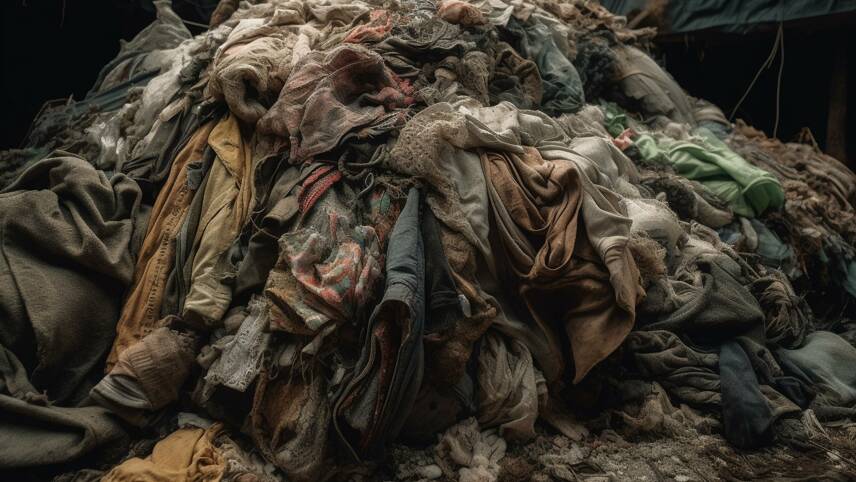Register for free and continue reading
Join our growing army of changemakers and get unlimited access to our premium content

An estimated £140m worth of clothing is sent to UK landfill each year.
The TRA, a recognised trade association representing more than 75% of the UK’s used textile collectors and sorters, has emphasised that processing plants across the nation are reaching capacity, in turn, threatening the ability to collect textiles from charity shops, recycling centres and community textile banks.
The TRA further highlights that fast fashion has intensified the influx of low-quality textiles into the recycling stream, driving up operational costs and pushing many textile merchants to the brink of financial collapse.
The repercussions of a failure to collect waste textiles could be catastrophic for the environment, according to the TRA, with potential consequences including microplastic pollution, water contamination and the accumulation of textile waste in landfills.
Globally, the scale of textile waste production amounts to 92 million tonnes annually – a figure equivalent to the height of Mount Everest every seven minutes.
The UK’s used textiles industry, valued at more than £1bn per year, holds significant economic importance, with an estimated one in every 25 jobs in the UK linked to this sector.
Nevertheless, according to the Waste and Resources Action Programme (WRAP), an estimated £140m worth of clothing is sent to UK landfill each year.
Additionally, only 620,000 tonnes of used textiles are collected every year for reuse and recycling in the UK, while 60% of these textiles are exported, as per WRAP data.
In response to these challenges, the TRA is urging the Government to intervene and regulate the industry, including the introduction of an EPR scheme.
The scheme will place the responsibility for the entire lifecycle of a product, including its disposal, on the producers rather than solely on consumers or waste management authorities.
Progress on UK’s textile EPR
In the 2018 Resources and Waste Strategy for England, textiles were identified as a key waste stream, prompting consideration of the ‘polluter pays’ principle and the implementation of an EPR scheme. The Department for Environment, Food & Rural Affairs (Defra) pledged to review and consult on the feasibility of EPR and product standards for the fashion and textiles sector.
In July of last year, the Government published its policy paper on waste prevention programme, outlining policy proposals to minimise and manage textile waste.
These policy proposals entail mandating large retailers to offer in-store textile takeback facilities, directing non-domestic settings to segregate textile waste for recycling, and prohibiting the disposal of sorted textiles in landfills or energy-from-waste facilities.
However, the policy paper did not mention any ongoing consultation on an EPR scheme for textiles.
A Defra spokesperson said: “We are aware of the global challenges facing the textile recycling industry and have been engaging with stakeholders across the supply chain to understand the pressures they face.
“We will be consulting on several policy proposals set out in our ‘Maximising Resources, Minimising Waste’ programme and we are open to industry’s views about how best to achieve these aims, including their suggestion of an EPR scheme for textiles.”
While UK lags behind, several European countries are considering measures to minimise textile waste by proposing an updated EPR scheme that will increase the amount that producers and retailers will need to contribute to collection, sorting and recycling.


Please login or Register to leave a comment.